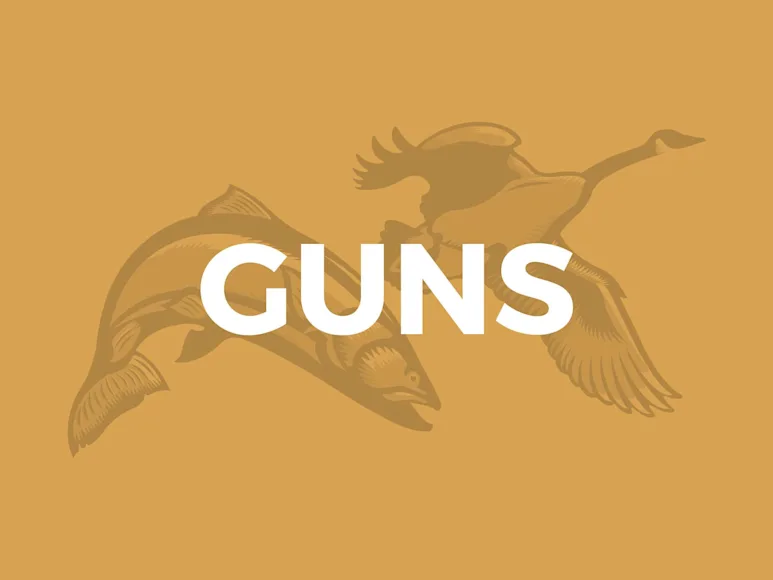_We may earn revenue from the products available on this page and participate in affiliate programs. Learn more ›
_
Thompson/Center has come out with a brand-new rifle–the Dimension
–that really is a brand-new rifle and not a firearm that’s been around for 60 years and has had a new stock slapped on it. It doesn’t look like a conventional rifle, and T/C doesn’t even call it a rifle–they refer to it as a “bolt-action platform.”

The basic Dimension is comprised of a universal stock (with a nice squishy recoil pad that has removable spacers), an aluminum receiver, and trigger (so-so at best). The barrel(s) interchange, as do the magazine(s), magazine well(s), and bolts. This enables you to convert the Dimension to .204 Ruger, .223, .22/250, .243, 7mm/08, .308, .270, .30/06, 7mm Rem Mag and .300 Win Mag. T/C divides these ten into four Groups: A, B, C, and D.
Here’s how it works: You can buy a Dimension in any of the 10 calibers. Let’s say you get a .270, which is a Group C cartridge, and then decide you want a .30/06 because everyone needs an ’06. So you buy a new barrel, and since the ’06 is also a Group C round, all you need is a new magazine and magazine well, which are included in the price of the barrel.
If, however, you decide to shoot zombies and are damned if you’re going to pay a lot for the ammo, you can convert to .223, which is a Group A cartridge, so you need a new barrel, bolt ($48), magazine, and magazine well. Interchanging all these parts is a snap–it takes a couple of minutes–and is virtually impossible to screw up because all the components of each cartridge group are stamped with the group letter.
I’ve hunted with the Dimension (a factory prototype) and shot a regular-production model in .308 and .223 at length, including numerous caliber swaps, and here’s what I can tell you:
* The Dimension works to perfection. I don’t see how you could screw it up, but if you can, you should not have a rifle of any kind.
* It may be odd-looking, but its ergonomics are excellent.
* The trigger leaves a lot to be desired. On my rifle, it’s 4 ½ pounds and creepy, and the adjustment screw that is supposed to reduce the weight refuses to budge.
* It is not a masterpiece of the gunmaker’s art. Fit and finish are OK, but no better.
* The barrels soar far above the fore-end, much like the dirigible Hindenburg floating over New York City on its way to Lakehurst Naval Air Station. The reason for all this extra space is, if you want to install a heavy barrel, there’s room for it.
* Accuracy in my rifle ranges from superior to supernatural. In .308, with 150- and 165-grain factory ammo, it would shoot everything into 1.5 inches or less. With 155-grain Berger VLD handloads the groups averaged .474; with 168-grain Bergers, 1.068. With 168-grain Federal Match, .652. In .223, some handloads Jay Jarrett worked up for his AR went into .347; my handloads for my prairie dog rifle averaged .221; Hornady factory loads, .729; Winchester Supreme factory, .183. No, that last is not a misprint. To put the .223 groups in perspective, they’re what I’d expect from a $5,000 heavy-barreled gun built by someone who really knew what he was doing. To get them from a light-barreled, mass-produced, medium-priced rifle causes the brain to short out.
* When you switch barrels, the barrel-locking nut unscrews, and in order to do so it must slide between the barrel and the scope bell. If it does not, you have to take the scope off the rifle, which is a pain in the ass and, to my mind, the only real flaw in the design.
Will the Dimension succeed? I don’t know. What I do know is that if you can get around its unconventional looks, the rifle has a lot going for it. I’m told it may even be made left-handed. Would I own one? If I wanted to stand it in the corner and admire it, no. If I wanted to shoot something, you bet.


